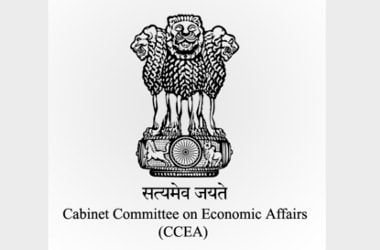
The Cabinet Committee on Economic Affairs, chaired by the Prime Minister Shri Narendra Modi has given its approval for re-structuring the schemes of the Ministry of Food Processing Industries (MoFPI) under new Central Sector Scheme – SAMPADA (Scheme for Agro-Marine Processing and Development of Agro-Processing Clusters).
This is for the period 2016-20 coterminous with the 14th Finance Commission cycle.
SAMPADA with an allocation of INR 6,000 crore is expected to leverage investment of INR 31,40
crore, handling of 334 lakh MT agro-produce valuing INR 1,04,125 crore, benefit 20 lakh farmers and generate 5,30,500 direct/ indirect employment in the country by the year 2019-20.
The objective of SAMPADA is to supplement agriculture, modernize processing and decrease agri-waste.
SAMPADA is an umbrella scheme incorporating ongoing schemes of the Ministry like Mega Food Parks, Integrated Cold Chain and Value Addition Infrastructure, Food Safety and Quality Assurance Infrastructure, etc.
It also covers new schemes like Infrastructure for Agro-processing Clusters, Creation of Backward and Forward Linkages, Creation / Expansion of Food Processing & Preservation Capacities.
The SAMPADA is a comprehensive package to give a renewed thrust to the food processing sector in the country.
It includes new schemes of Infrastructure for Agro-processing Clusters, Creation of Backward and Forward Linkages and Creation / Expansion of Food Processing & Preservation Capacities aim at development of modern infrastructure to encourage entrepreneurs to set up food processing units based on cluster approach.
It seeks to provide effective and seamless backward and forward integration for processed food industry by plugging gaps in supply chain and creation of processing and preservation capacities and modernization/ expansion of existing food processing units.
SAMPADA: Implementation and Background- The implementation of SAMPADA will result in creation of modern infrastructure with efficient supply chain management from farm gate to retail outlet.
- It will not only provide a big boost to the growth of food processing sector in the country but also help in providing better prices to farmers and is a big step towards doubling of farmers’ income.
- It will create huge employment opportunities especially in the rural areas. It will also help in reducing wastage of agricultural produce, increasing the processing level, availability of safe and convenient processed foods at affordable price to consumers and enhancing the export of the processed foods.
- Food Processing Sector has emerged as an important segment of the Indian economy in terms of its contribution to GDP, employment and investment.
- During 2015-16, the sector constituted as much as 9.1 and 8.6 per cent of GVA in Manufacturing and Agriculture sector respectively.
- The manifesto of NDA Government stresses upon incentivizing the setting up of food processing industry for providing better income for the farmers and creating jobs.
- Various measures have been taken by the government to give a boost to the food processing sector. With these measures food processing sector has grown at 7 per cent.
Initiatives For Food Processing- In order to arrest post-harvest losses of horticulture & non-horticulture produce, the Ministry has accorded approval to 42 Mega Food Parks and 236 Integrated Cold Chains for creation of modern infrastructure for the food processing along the value chain from the farm to the market.
- Out of 42 Mega Food Parks, 8 are operational. Of this, 6 Mega Food Parks have been made operational during the last 3 years.
- Another 4 Mega Food Parks are targeted for operationalization in next three months.
- Similarly, out of 236 Cold Chains, 101 Cold Chains have been sanctioned recently in March, 2017.
- 100 Cold Chains have become operational. Of which, 63 Cold Chains have been made operational during last 3 years.
Government has taken various other measures to boost food processing sector as follows:- To provide impetus to investment in food processing and retail sector, govt. has allowed 100% FDI in trading including through e-commerce, in respect of food products manufactured and / or produced in India. This will benefit farmers immensely and will create back – end infrastructure and significant employment opportunities.
- The govt. has also set up a Special Fund of INR 2000 crore in NABARD to make available affordable credit at concessional rate of interest to designated food parks and agro processing units in the designated food parks.
- Food and agro–based processing units and cold chain infrastructure have been brought under the ambit of Priority Sector Lending (PSL) to provide additional credit for food processing activities and infrastructure thereby, boosting food processing, reducing wastage, create employment and increasing farmers’ income.